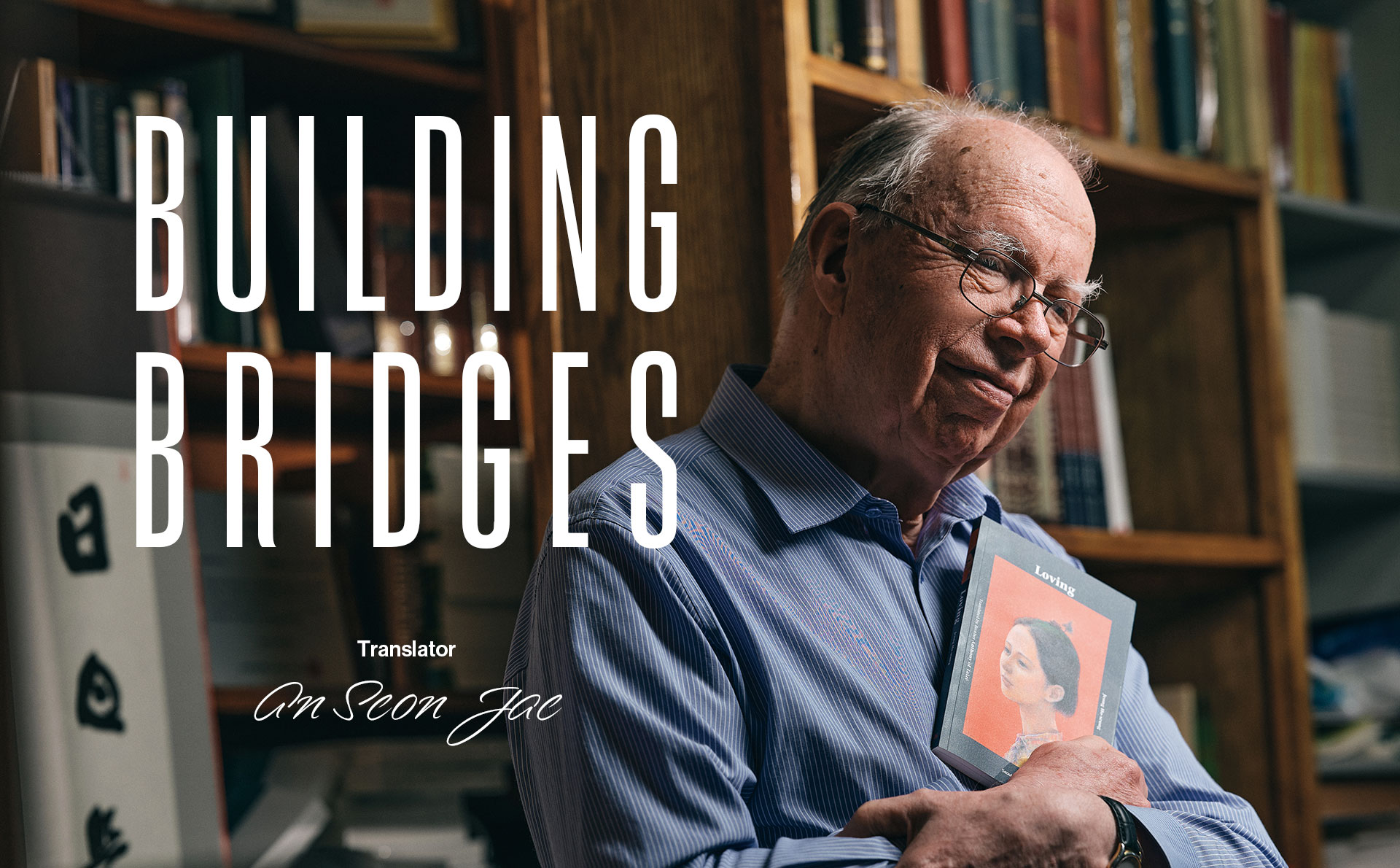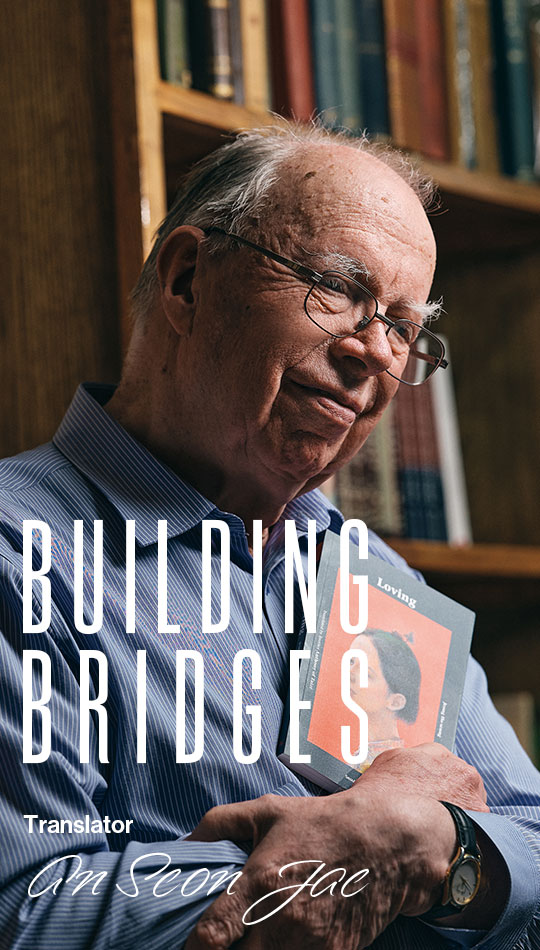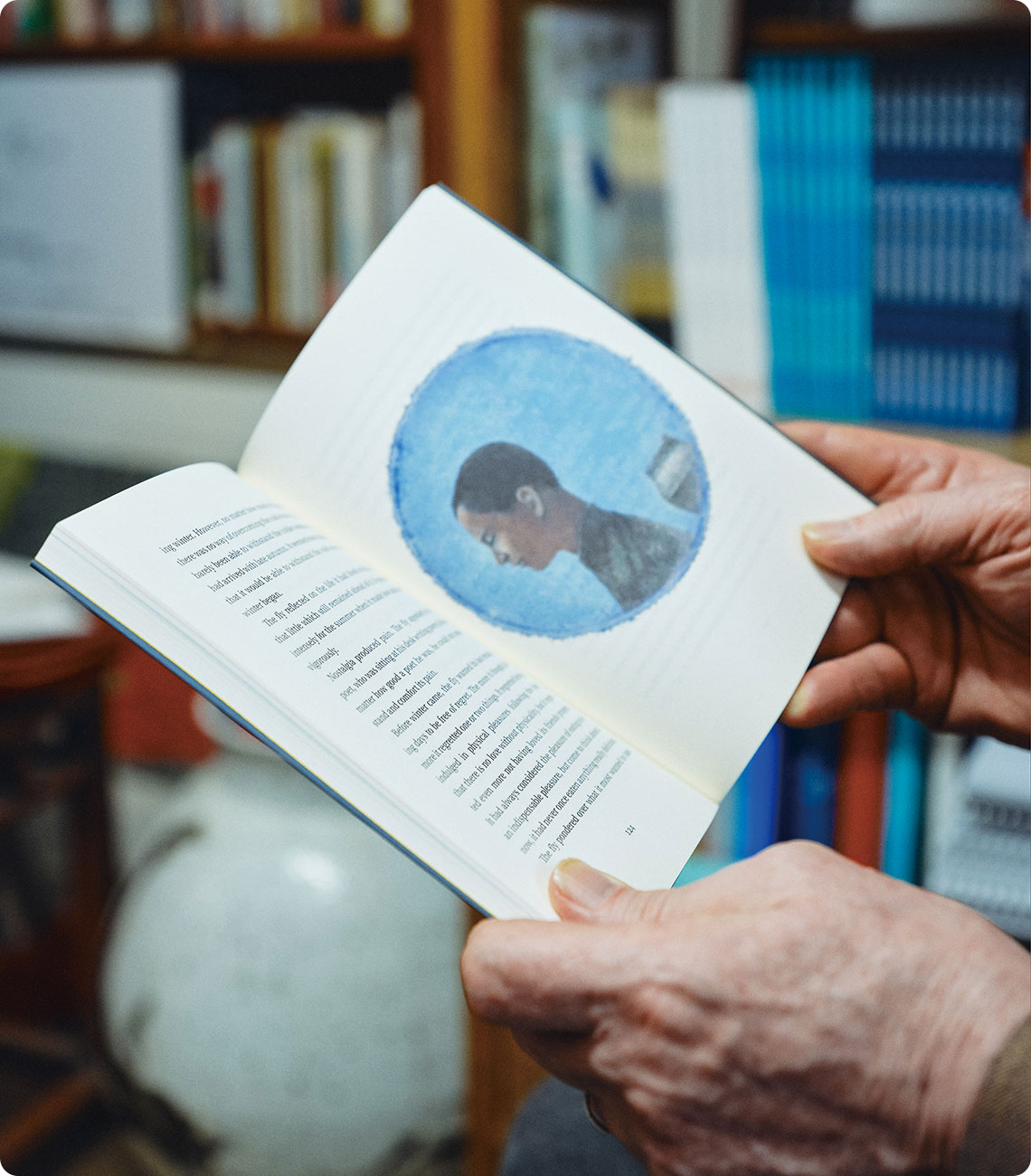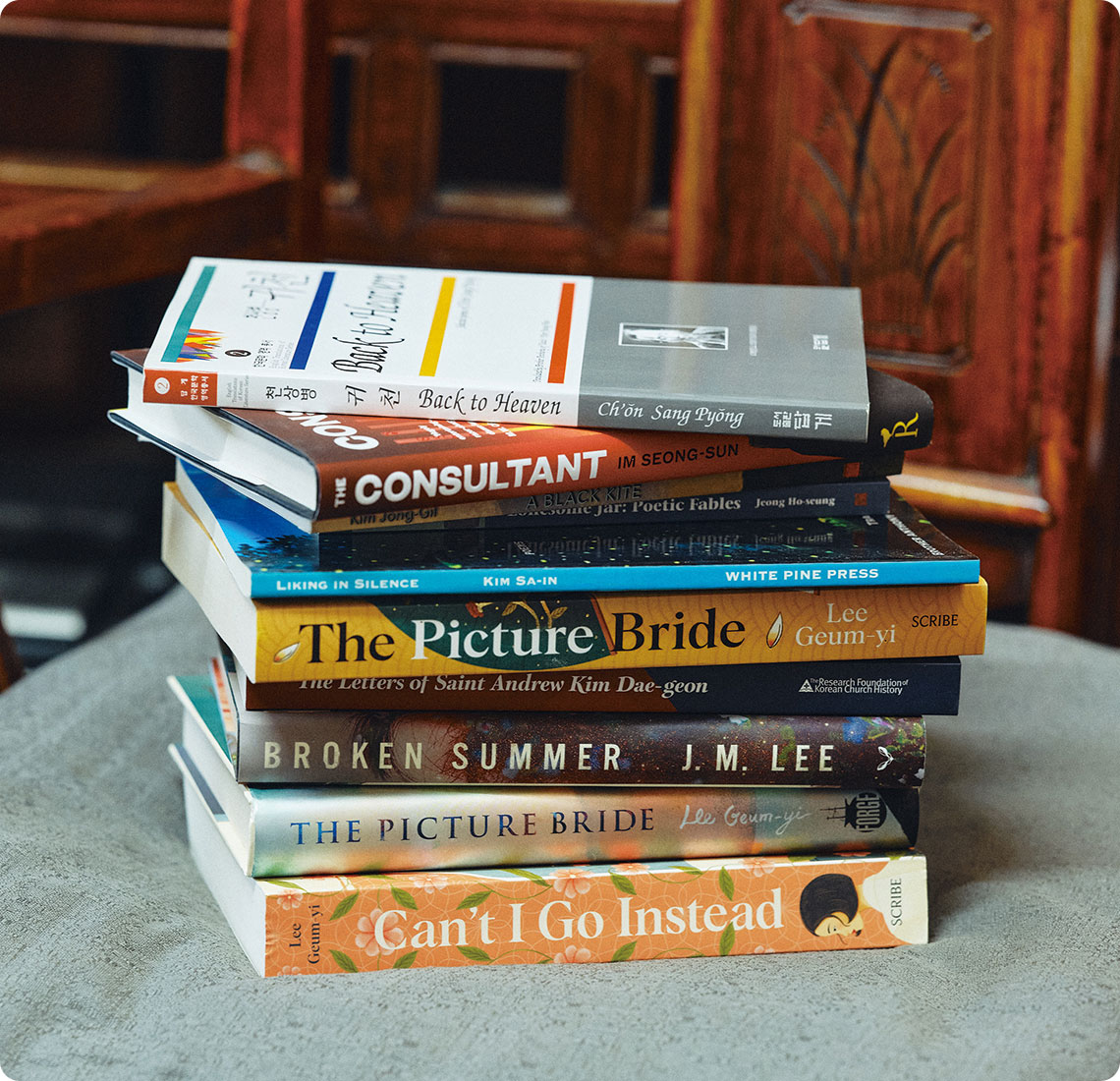Korean writers are winning major literary awards, which has brought more international attention to Korean literature than ever before. While the quality of Korean literature has played a large role in its popularity among overseas readers, the way the works have been translated is equally important. In the end, the success of Korean literature abroad has been thanks to the tireless efforts of translators. Translators are the bridge between overseas readers and Korean literature, and translator An Seon Jae (Brother Anthony) is a central figure in bringing Korean literature to international audiences.


Writer.
Wang Bo Young
Photos courtesy of.
Heo Dong-wuk
The Changing Face of Korean Literature
The number of international requests for translation support for the publication of Korean literature has increased 20-fold in the past 10 years, and this trend is especially significant given that foreign publishers are making the requests voluntarily. In the past, the translation support system was supply-oriented, with private foundations and Korean literary translation centers selecting and supporting works for translation, but now it has become demand-oriented, with foreign publishers selecting the works they want and signing copyright contracts.
Translators are at the forefront of transforming Korean literature into works that readers around the world can enjoy. An Seon Jae is one of the translators actively bringing Korean literature to the global market.
“In the past, Koreans would say to each other, ‘We have so many good literary works, so if we just translate them, non-Koreans will enjoy them.’ But that’s a mistake. Works that are too Korean-centric are not really interesting to non-Koreans. They don’t understand the historical and cultural background.”
He has worked on both modern and contemporary Korean literature, and he attributes the recent popularity of Korean literature to the globalization of Korea. In the past, Korea was a closed society, but now it is an open society where anyone can easily access foreign literature and experience foreign cultures at any time.
“In recent years, Korean literature has become more diverse, with works everyone can relate to, rather than focusing on social and human issues that only Koreans can understand. This change has helped Korean literature appeal to overseas readers and raised its profile.”
 An opens his favorite page from Jeong Ho-Seung’s poetry collection, which he translated.
An opens his favorite page from Jeong Ho-Seung’s poetry collection, which he translated.
The Path to Becoming a Translator
An’s connection to Korea dates back to 1980, when he studied medieval literature in Oxford, England, and then traveled to France to further his studies, where he encountered the Taize Community, which inspired him to become a monk. He then traveled to the Philippines, where he met the late Cardinal Kim Sou-hwan while doing volunteer work. At Kim’s invitation, An came to Korea in 1980, where he began as a lecturer at Sogang University and later became a professor of the English Department, teaching courses on English medieval and Renaissance literature and poetry until his retirement in 2007.
“Around 1988, while teaching English poetry to my students, I suddenly became curious about Korean poetry. I asked a fellow professor how I could learn about Korean poetry, and he introduced me to a poet named Ku Sang, encouraging me to translate his poems, and then I was introduced to other poetry collections, and I began my journey as a translator.”
He has translated 58 poetry books, 11 novels and four non-fiction books. Recently, he has published his translation of Park Nohae’s poetry collection “Dawn of Labor,” and completed the translation of Jung Yu-jeong’s novel “Jini, Jinny” and which is currently awaiting publication. He is also working on collections of poems by Jeong Ho-seung.
“When I started translating, my Korean was poor, so none of the translations were easy. The most difficult works were Yi Mun-yol’s novel ‘Son of Man,’ which had a lot of religious references and Ko Un’s novel ‘Little Pilgrim (Hwaeom-gyeong),’ which had a lot of Buddhist terms and Korean phrases.”
Another work of literature he remembers is “Farmer’s Dance,” a collection of poems by Shin Kyong-nim, which he considers his best translation. Published in the 1960s, it was the author’s first book of poetry and captured the poverty and suffering of the rural people of the time. There is also a collection titled “Back to Heaven” by the poet Cheon Sang-byeong. According to An, “Back to Heaven” is a poem with a pure and valuable message about life, and it is the only poem he could memorize. The collection has been reprinted 24 separate times.
 Books translated by An. He translates a variety of genres, including poetry collections and novels.
Books translated by An. He translates a variety of genres, including poetry collections and novels.
Translation is No Easy Endeavor
An defines translation as “building bridges between Korea and other countries.” His goal is to help Korean literature speak to people around the world and, in turn, to help Korean literature become a part of global literature.
However, translation is not an easy task. The translated work must be completely readable for those living in English-speaking countries. This ensures that the reader can fully enjoy the work even if he or she doesn’t know Korean feelings or history so that the reader doesn’t feel that it’s a translated work but just an “interesting” piece of writing to read. Additionally, the work must strike a balance between being faithful to the original and being readable without ruining the original flow of the work.
“I’m not bilingual. I never picked up Korean easily, and I’m not good at it. That’s why I can’t work as fast as other translators. I don’t have Korean blood in my veins, so I can’t feel Korean literature the way Koreans do. I have to go over words and sentences again and again to make sure I’m translating correctly. I keep asking myself what words and phrases I should use to best convey the meaning. When I’m done with the translation, I read it out loud to myself to make sure it sounds ‘poetic,’ just like a British poet would do with his own work.”
An has been working as a translator for more than 30 years, so translating has become both a hobby and something he has to do. He doesn’t choose works to translate by any criteria, preferring to translate works he stumbles upon and is drawn to, and he prefers poetry that speaks to the human soul to depressing modern novels.
“Translating is hard, but publishing is even harder. Even if you find a good publisher and get it published, you often think, ‘Who will read it?’ Of course, I don’t worry about that: I can’t do anything but translate.”
Without an audience, translation becomes a futile endeavor because translated works are for readers, not publishers or writers. To this day, An continues to translate so that readers around the world can discover that Korean literature is both enjoyable and interesting.
